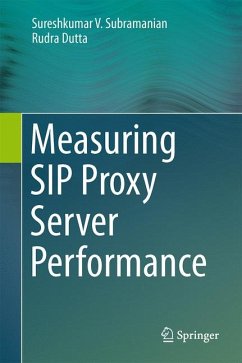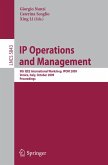Internet Protocol (IP) telephony is an alternative to the traditional Public Switched Telephone Networks (PSTN), and the Session Initiation Protocol (SIP) is quickly becoming a popular signaling protocol for VoIP-based applications. SIP is a peer-to-peer multimedia signaling protocol standardized by the Internet Engineering Task Force (IETF), and it plays a vital role in providing IP telephony services through its use of the SIP Proxy Server (SPS), a software application that provides call routing services by parsing and forwarding all the incoming SIP packets in an IP telephony network. SIP Proxy Server Performance closely examines key aspects to the efficient design and implementation of SIP proxy server architecture. Together, a strong design and optimal implementation can enable significant enhancements to the performance characteristics of SPS. Since SPS performance can be characterized by the transaction states of each SIP session, the book analyzes an existing M/M/1-network performance model for SIP proxy servers in light of key performance benchmarks, such as the average response time for processing the SIP calls and the average number of SIP calls in the system. It also presents several other real-world industrial case studies to aid in further optimizations. This book is intended for researchers, practitioners and professionals interested in optimizing SIP proxy server performance. Professionals working on other VoIP solutions will also find the book valuable.
Dieser Download kann aus rechtlichen Gründen nur mit Rechnungsadresse in A, B, BG, CY, CZ, D, DK, EW, E, FIN, F, GR, HR, H, IRL, I, LT, L, LR, M, NL, PL, P, R, S, SLO, SK ausgeliefert werden.









